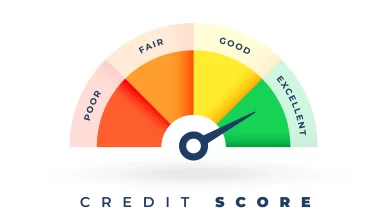Key Factors to Consider When Investing in Off-Plan Properties in Dubai

Investing in off-plan properties in Dubai can be a lucrative opportunity for investors seeking potential high returns. With its booming real estate market and attractive incentives, Dubai offers a plethora of off-plan projects. However, navigating this landscape requires careful consideration of several factors to ensure a successful investment. In this article, we’ll explore the key factors investors should consider before diving into off-plan property in Dubai.
Developer Reputation:
Falconpremier.ae, The reputation of the developer is paramount when investing in off-plan properties. Conduct thorough research on the developer’s track record, previous projects, delivery timelines, and financial stability. Established developers with a history of delivering quality projects on time are generally safer bets.
Location and Infrastructure:
Location plays a crucial role in the success of any real estate investment. Evaluate the proximity of the off-plan property to key amenities such as schools, healthcare facilities, shopping centers, and transportation hubs. Additionally, consider the existing and planned infrastructure developments in the area, as they can significantly impact the property’s value over time.
Market Trends and Demand:
Stay informed about current market trends and demand dynamics in Dubai’s real estate sector. Analyze factors such as supply and demand dynamics, rental yields, and property appreciation rates. Investing in areas with high demand and limited supply can potentially yield higher returns.
Regulatory Environment:
Familiarize yourself with Dubai’s regulatory framework governing off-plan property investments. Understand the legalities involved, including escrow account regulations, project registration requirements, and investor protections. Ensure that the project adheres to all regulatory guidelines to mitigate any risks associated with legal issues.
Payment Plans and Pricing:
Examine the payment plans offered by the developer and assess their suitability for your financial situation. Some developers offer flexible payment plans with staggered installments, which can be beneficial for investors with limited upfront capital. Additionally, compare the pricing of similar properties in the area to ensure that you’re getting a competitive deal.
Quality and Design:
Evaluate the quality and design of the off-plan property by reviewing floor plans, specifications, and architectural renders. Look for features that differentiate the project from others in the market and add value to the property. Consider factors such as building materials, finishes, and amenities to gauge the overall quality of the development.
Risks and Exit Strategies:
Assess the risks associated with the investment and develop contingency plans accordingly. Consider factors such as market volatility, construction delays, and potential changes in regulations. Additionally, have clear exit strategies in place, whether it involves selling the property upon completion, renting it out for income, or holding onto it for long-term capital appreciation.
Market Research and Due Diligence:
Conduct comprehensive market research and due diligence before finalizing any investment decision. Seek advice from real estate professionals, consult with financial advisors, and leverage available resources to gather relevant information. Visiting the project site, attending property exhibitions, and networking with industry experts can provide valuable insights into the market dynamics.
Legal and Financial Considerations:
Seek legal advice to ensure that all contractual agreements are fair and legally binding. Understand the terms and conditions outlined in the sales contract, including payment schedules, delivery timelines, and dispute resolution mechanisms. Additionally, consider the financing options available for off-plan properties, such as mortgage financing or developer financing.
Long-Term Vision and Goals:
Align your investment strategy with your long-term financial goals and risk tolerance. Determine whether the off-plan property aligns with your investment objectives, whether it’s capital appreciation, rental income, or portfolio diversification. Evaluate the potential returns and risks associated with the investment in the context of your overall investment portfolio.
In conclusion, investing in off-plan properties in Dubai can offer lucrative opportunities for investors, but it requires careful consideration of various factors. By assessing the developer reputation, location, market trends, regulatory environment, payment plans, quality, risks, market research, legal and financial considerations, and long-term goals, investors can make informed decisions and maximize their chances of success in Dubai’s dynamic real estate market.





